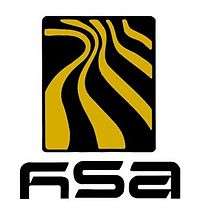Hayel Saeed Anam Group
 | |
| Conglomerate | |
| Industry | Cement, Agricultural Production and Processing, Palm Oil refining, Wheat Flour manufacturing, Sugar refining, Fast Consumer Goods manufacturing, Dairy Products, Oil&Ghee, Tobacco, Plastic, Textile, Mineral Water, Trading, Construction, Oil&Mining, Real Estate development, Insurance, and Banking |
| Founded | 1938 |
| Founder | Hayel Saeed Anam |
| Headquarters | Yemen |
Number of locations | Saudi Arabia, the United Kingdom, Malaysia, Indonesia, the United Arab Emirates, Bahrain, Jordan, Iraq, Egypt, Yemen, Djibouti, Somalia, Ethiopia, Kenya, Algeria and Sudan |
| Revenue | 10 Billion USD |
| Owner | Family Owned |
Number of employees | 38000 |
| Website |
www |
The Hayel Saeed Anam Group (Arabic: مجموعة شركات هائل سعيد أنعم) is a multibillion-dollar conglomerate active in the Middle East, North Africa, the Horn of Africa, Europe, and South East Asia. The group was responsible for 35% of the economy of Yemen in 2007,[1] and is owned and managed by the Hayel Saeed Anam family that stands to be by far the richest family in the country. The group today has grown to own over 92 companies in various areas, including Saudi Arabia, the United Kingdom, Malaysia, Indonesia, the United Arab Emirates, Bahrain, Jordan, Iraq, Egypt, Yemen, Djibouti, Somalia, Ethiopia, Algeria and Sudan.[2] Generating total revenue of $10 billion, the HSA group operates through Hayel Saeed Anam & Co. Ltd..
Overview
The Hayel Saeed Anam Group was founded in 1938 by the late Haj Hayel Saeed Anam, born in 1902 in the village of Qaradh in the Ta'izz Governorate of Yemen. It was originally known as, and specialized in the import, export and general agencies fields. Through Anam's work in Aden, Somalia and France, he acquired knowledge on different administrative systems and working conventions in the manufacturing and trading sectors.[3]
The Hayel Saeed Anam Group today operates as a holding company with in industries including oil and gas,mining, real state, banking, construction, domestic and international trade, shipping, import/export, wholesale and retail;[1] services, including insurance, maritime logistics and support, hotel operations; and manufacturing ranging from cement, flour, cigarettes, sugar, dairy products, oil and ghee, palm oil, soap detergent, juices, textiles, and canned foods, plastics, sponges, and other household goods, plastic bags, pipes, houses, and corrugated cartons.
Other trading companies that the group operates include Natco, Middle East Trading Co., United Marketing Co., and Al-Saeed Trading Co..
In 1997, the group established one of the largest flour mills and silos in the Middle East. The company was named YemenCo. for Flour Mills & Silos, a company engaged in the production and marketing of Wheat Flour and other allied products. Then later in 2006, HSA was the first private sector firm to establish a cement factory under the name National Cement Company.
In 2001, the group established the Hood Oil Company. Hood Oil currently holds working interests in 3 blocks in Yemen; block 9, 34, 37. In 2007 Hood Oil entered the refinery market, forming a US$450 million joint venture with India's Reliance to build an oil refinery in Ras Issa.[4] In 2006, the company formed a joint venture with China's Jotun Paints to build a 17,000-square-meter paint factory in Aden.[5] In that year, also, the Saeed group led an investment consortium to build US$100 million sugar refinery in Hudaida.[6][7]
The company launched its first foreign manufacturing operation in 1987 in Saudi Arabia. Several other operations followed that year in Saudi Arabia and other countries such as United Kingdom, Malaysia, Indonesia, UAE, Egypt. By the mid 2000s, the firm had industrial palm oil refineries in Indonesia and Malaysia.
HSA also owns working interests in cement factories in Egypt and Algeria, and is a shareholder of the private equity "Swicorp Jousoor" focusing on petrochemicals, intensive energy industries, oil & gas, and infrastructure.
References
- 1 2 "HSA to Rope in RIL for Retail Venture in Yemen". The Economic Times. 2007-02-16.
- ↑ "Al-Saeed Trading Co. Ltd.". Hayel Saeed Anam. Retrieved 26 November 2013.
- ↑ "The Founder - HSA Group". Hayel Saeed Anam. Retrieved 26 November 2013.
- ↑ "Yemen invites RIL to invest in oil refinery". The Financial Express (India). 2007-02-22.
- ↑ "Jotun Yemen Paints Unveils New Factory". Coatings World. 2006-05-01.
- ↑ "DJ Yemen-Based Group to Build $100M Sugar Refinery". FWN Financial News. 2006-08-22.
- ↑ "Sugar Refinery Planned". Middle East Economic Digest. 2006-09-22.
External links
- Official website
- "Businessman Ahmed Hail Saeed Ana'am dies in Taiz". Yemen Times. 2012-07-09.
- "New Cement Plant Planned". Middle East Economic Digest. 2004-01-09.